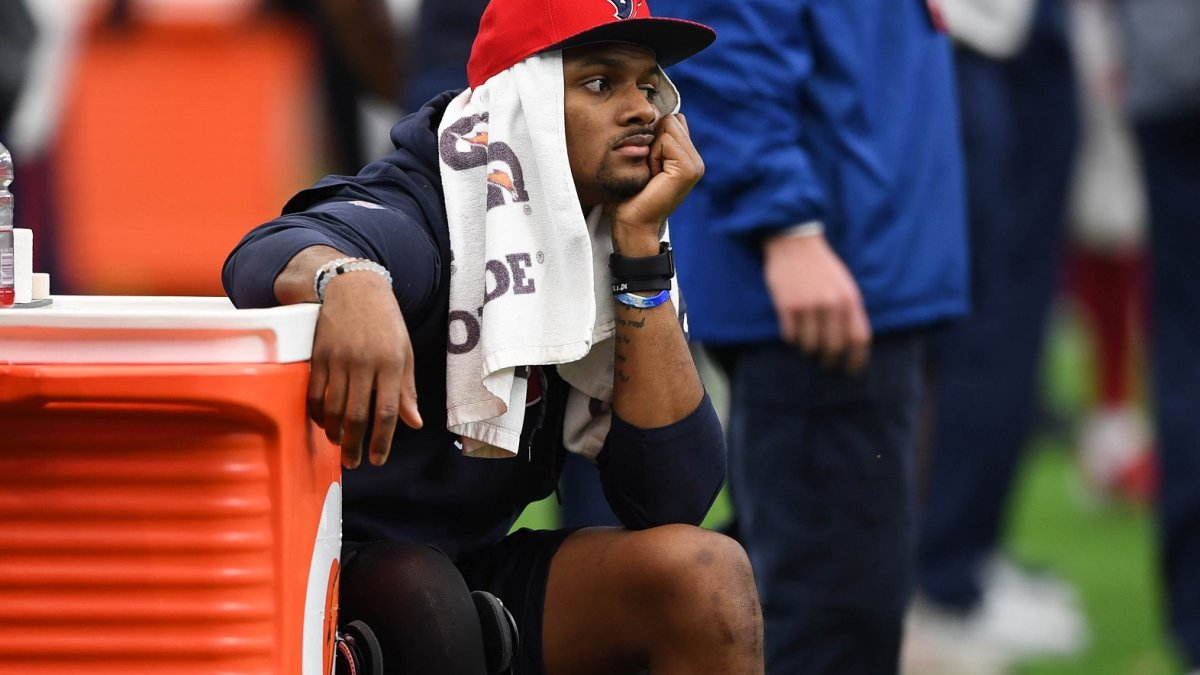(Metrics that Matter is a regular offseason feature that examines some aspect of fantasy through a microscope to dive into the finer details.)
Take ADP information this early with a grain of salt, but Deshaun Watson’s current ADP is, well, leaving me salty. Per Fantasy Football Calculator, he’s being drafted (on average) as the first quarterback-overall in PPR leagues. In the ongoing PFF Fantasy mock draft (writeup to come upon the draft’s completion), only Aaron Rodgers went ahead of him. That seems excessive for a quarterback coming off an ACL injury who has played in only seven career games.
Make no mistake about it, Watson played out of his mind last season, but just deferring to the longer histories of success from someone like Rodgers or Tom Brady, I can’t get on board.
Just how good was Watson’s rookie season?
Through seven games, Watson averaged 25.0 fantasy points per game – the eighth-most by any quarterback all time. If we exclude Week 1, when he didn’t take a snap until the second half, Watson would have averaged 27.7 fantasy points per game – the most by any quarterback all time. Watson also averaged 0.73 fantasy points per dropback, which was the most of any quarterback in the PFF-era (2007-2017), and 24.6 percent more than 2017’s next-closest quarterback. Needless to say, this is a major departure from where the Texans were as a franchise before Watson’s first start. From 2014 to 2016, the Texans ranked fourth-worst in total quarterback fantasy points.
Watson wasn’t only incredible from a fantasy perspective, either. Among all rookie quarterbacks to throw at least 200 passes in a single season, Watson’s 2017 season ranks second-best in passer rating. He was also almost just as impressive on the ground, falling behind only Cam Newton in rushing fantasy points per dropback in 2017. While the latter metric might not repeat to the same degree (the Texans might want to limit rushing attempts for Watson following his injury), it’s clear he has massive upside as a dual-threat quarterback.
Watson also helped elevate his supporting cast, with DeAndre Hopkins and Will Fuller (ridiculously) ranking first (21.1) and second (21.0), respectively, among all wide receivers in fantasy points per game before Watson’s season-ending ACL injury.
Watson was my favorite quarterback coming out of last year’s class, mainly because he excelled at my favorite metric for analyzing quarterback efficiency. During the PFF College era (2014-2017), his career ranks second-best among all Power-5 quarterbacks in depth-adjusted completion percentage (a statistic outlined here), behind only Baker Mayfield. Still, I never expected him to perform as well as he did, and even now, I have major concerns.
While it’s hard to find faults with his stats, because they all look great, one concern is that they were possibly too (or, rather, unsustainably) good. He averaged a touchdown pass on 9.31 percent of his attempts, which was the second-best rate among all 1,464 quarterbacks to attempt at least 200 passes since the NFL merger.
Top-30 QB Seasons by TD% (Since the NFL Merger, min. 200 pass attempts) pic.twitter.com/dXoCGw01js
— Scott Barrett (@ScottBarrettDFB) February 13, 2018
On the list of top-30 seasons, we see only 15 quarterbacks who aren't already in the Hall of Fame, or are likely to be (Aaron Rodgers, Ben Roethlisberger, Peyton Manning, and Tom Brady).
As we’ve written about elsewhere, touchdowns are fairly random and touchdown rate has a low correlation year-over-year, but passing touchdowns has the highest correlation to quarterback fantasy points. Looking at the top-50 quarterback seasons, among qualifiers (minimum 200 pass attempts in the following season), touchdown rate dropped from 7.7 percent to 5.3 percent in the following season, while the average for all players in all seasons was 4.3 percent. If Watson were to decline by a similar margin, we would expect him to average a whopping 4.7 fewer fantasy points per game less in 2018, if everything else stays the same.
So what does this mean for fantasy?
With Watson we have multiple concerns – the fact that he’s coming off a serious injury, we only have a small seven-game sample to work with, and he’s likely to regress in efficiency. Furthermore, he graded out only 28th-best of 36 qualifying quarterbacks in 2017, suggesting he didn’t play as well as his statistics imply. Indeed, in our 2018 QB Annual, we highlighted concerns regarding volatility. He ranked best in big-time throw percentage, but only 33rd-best in turnover-worthy play percentage.
All of this being said, I still have Watson top-six among quarterbacks in my early rankings. Watson is a young dynamic talent with massive upside, but I think that No. 1 overall is absurd.
The final question then becomes, what do we do with his receivers?
Fuller averaged a ridiculous and unsustainable 21.5 yards per reception and 0.54 touchdowns per reception in games Watson played. He was on pace for (16 games) 52 receptions, 1,116 receiving yards, and 28 touchdowns prior to Watson's injury, and there’s no way that’s realistic. That said, he’s a screaming value if Watson starts Week 1 at his current ADP (WR48).
Hopkins is the second wide receiver off the boards at current ADP, and I have absolutely no problem taking him there. Hopkins ranked first in fantasy points per game prior to Watson’s injury, and then ranked third-best in the weeks following. Hopkins is the unicorn of wide receivers, proving he can be one of fantasy’s best wide receivers, regardless of who is throwing him the ball (unless it’s Brock Osweiler).



 © 2024 PFF - all rights reserved.
© 2024 PFF - all rights reserved.